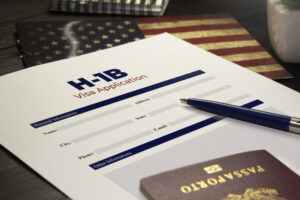According to a recent Forbes article, the year 2020 promises new restrictions on H-1B visas that are likely to decrease the number of H-1B visas further that the federal government issues. First, employers will be required to participate in electronic registration by paying a $10 fee and providing some information about their proposed applications. These registrations then are placed in a lottery each April for the 65,000 available H-1B visas and the 20,000 cap-exempt visas for individuals with advanced degrees from U.S. colleges and universities. As a result of the ease with which employers can enter the lottery at a relatively low cost, many expect that the electronic registration process will increase the number of applicants significantly. This process could have the effect of pushing out smaller employers in favor of larger employers with more applications. Additionally, since details on the selection and timing of applications following the lottery have been somewhat unclear, employers anticipate time pressures to figure into the ability to submit H-1B visa applications.
Another new development concerns an anticipated rule that would redefine “specialty occupation,” “employment,” and the “employer-employee relationship.” For instance, internal USCIS documents have revealed a proposal to exclude computer programming from specialty occupations. Another possibility is that professions that do not require a minimum of a bachelor’s degree would not qualify as specialty occupations. Redefining “employment” also could affect information technology (IT) service companies, which already are seeing a much higher denial rate of their H-1B visa applications.

Various other policies that could impact H-1B visas are currently the subject of litigation, whose outcomes are uncertain at this point. One such issue relates to the Non-Speculative Work Rule, under which U.S. Citizenship and Immigration Services (USCIS) has demanded that companies provide a list of all work assignments that an H-1B visa holder will have for as many as three years into the future. This litigation is indicative of an increasing trend toward challenging H-1B visa denials in court.
Our goal is to assist you with your immigration concerns, whether family or business-based. We can evaluate your situation and develop a strategy that is most likely to be efficient and effective in your case. Regardless of the immigration matter that you are facing, the attorneys of Peek Law Group have the experience, knowledge, and reputation that you want and need to advocate on your behalf. When results matter most, contact us at (512) 399-2311.

